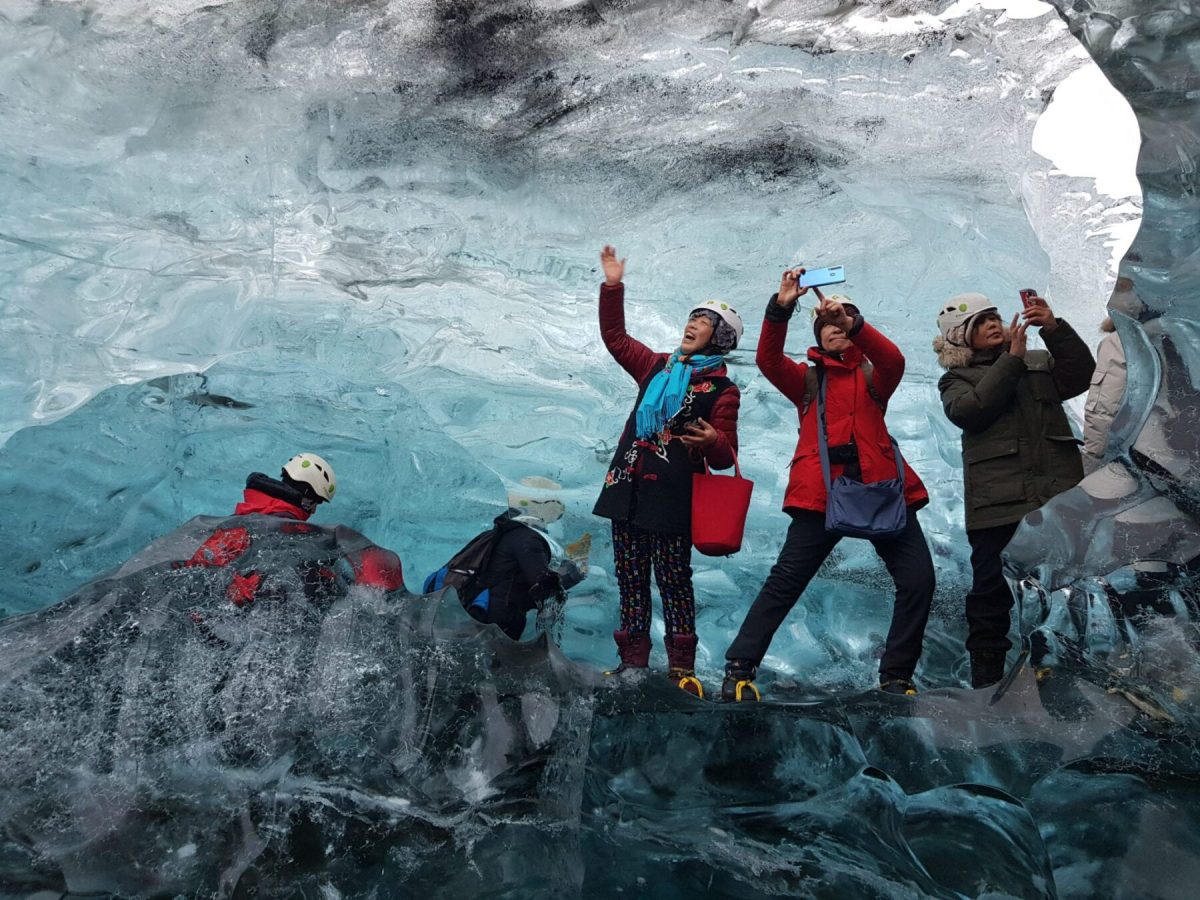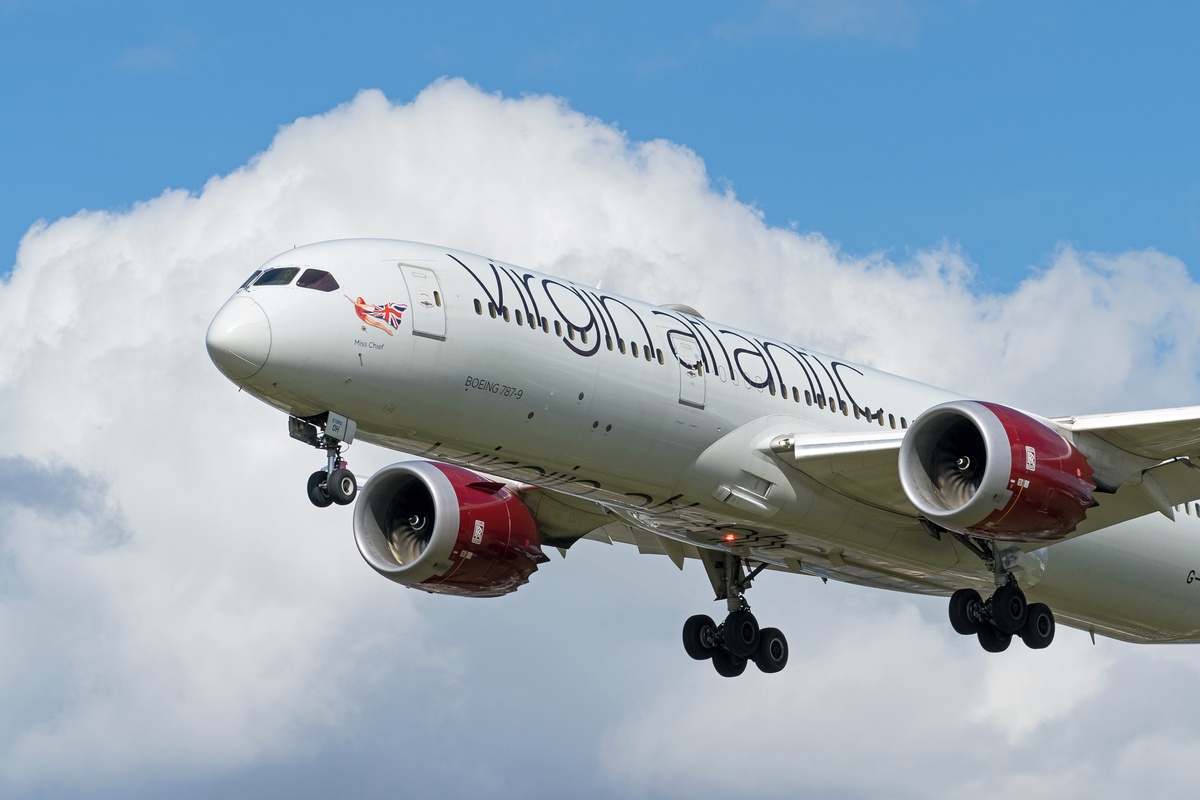Watch Video: Breaking Down the Opportunities and Challenges of Adopting AI in Travel

Skift Take
Skift Research believes that generative Artificial Intelligence represents a $28 billion-plus opportunity for the travel industry. It stands to change the way that we search for travel, how companies provide customer service, and could drive operational efficiencies across the industry.
Skift founder and CEO Rafat Ali, Director at Skift Research Seth Borko, and Travel Tech Reporter Justin Dawes discussed the opportunities and challenges the travel industry faces with the ongoing developments of generative AI in a recent LinkedIn Live session. This discussion, which you can view below, covered how AI is being used today in travel, which companies are deploying these tools, and the ways in which Skift sees this tech shaping the future of travel. It is built on findings in the Skift Research Generative AI's Impact on Travel report that we recently launched.
Large language models (LLMs) like ChatGPT have the potential to drive a wave of disruption and displacement in the travel industry similar to that of mobile phones, and yet the sector seems unprepared for it.
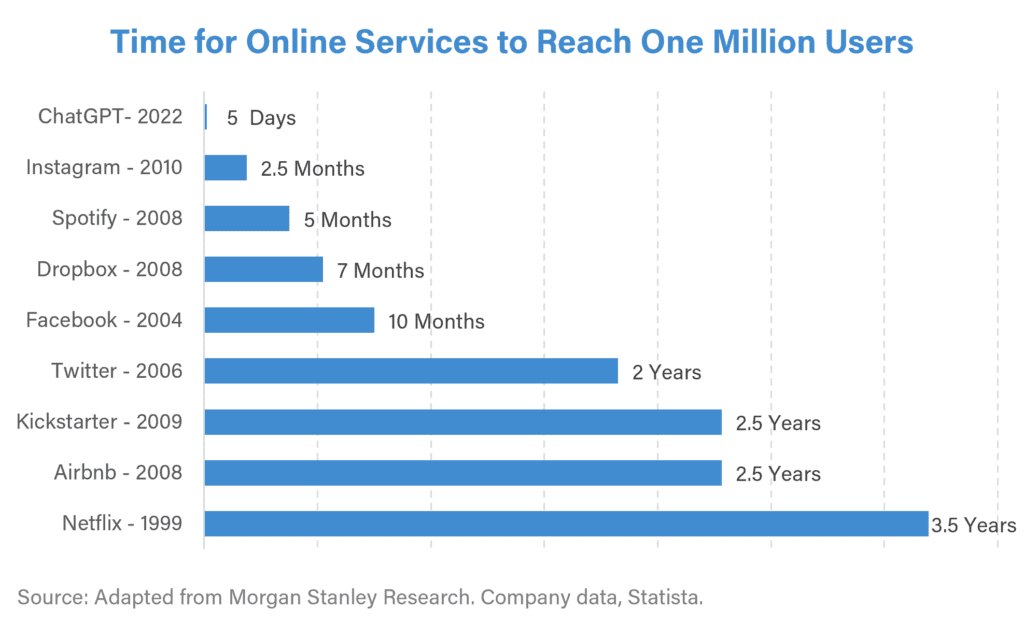
Who would’ve guessed that a new phone would upend centuries old travel businesses, but yet that’s exactly what happened. Travel companies which did not adapt to the mobile era, or to the desktop internet era before that, did not survive.
The below excerpts from this industry-first report and details how Skift Research sees at least four significant use cases for generative AI and large language models in travel. These are well-defined markets with medium-to-high visibility into the role that LLMs could play. This allows us to create a dollar estimate for each.
- Customer Service Chatbots: LLMs can significantly improve the chatbot experience and make it more useful for customers. We estimate this could be a multi-billion dollar market
- Developer Efficiencies: Generative AIs can help programmers write better code, faster. This leads to faster development cycles and more new tech. We estimate that this could present hundreds of millions in annual savings.
- Reputation Management: AIs can help evaluate customer sentiment and allow travel businesses to respond to online reviews, boosting their online reputation. We estimate that this could be a multi-billion dollar market.
- Performance Advertising: One of the key strengths of generative AI is the ability to search for, summarize, and present information in an accessible way. This stands to change the travel planning searches are made and with that will command a significant share of performance advertising dollars. We estimate this could be a multi-billion dollar market.
As far as speed to market, operational efficiency in the form of ‘co-pilot’ tools are already here and will be where the first impact of AI is felt in travel. Customer support and reputation use cases can be developed relatively easily as well and we expect these tools will be the second wave of AI in travel. Changes to consumer search behavior, and with that, the impact of AI on the travel marketing funnel will probably take the longest time to play out.
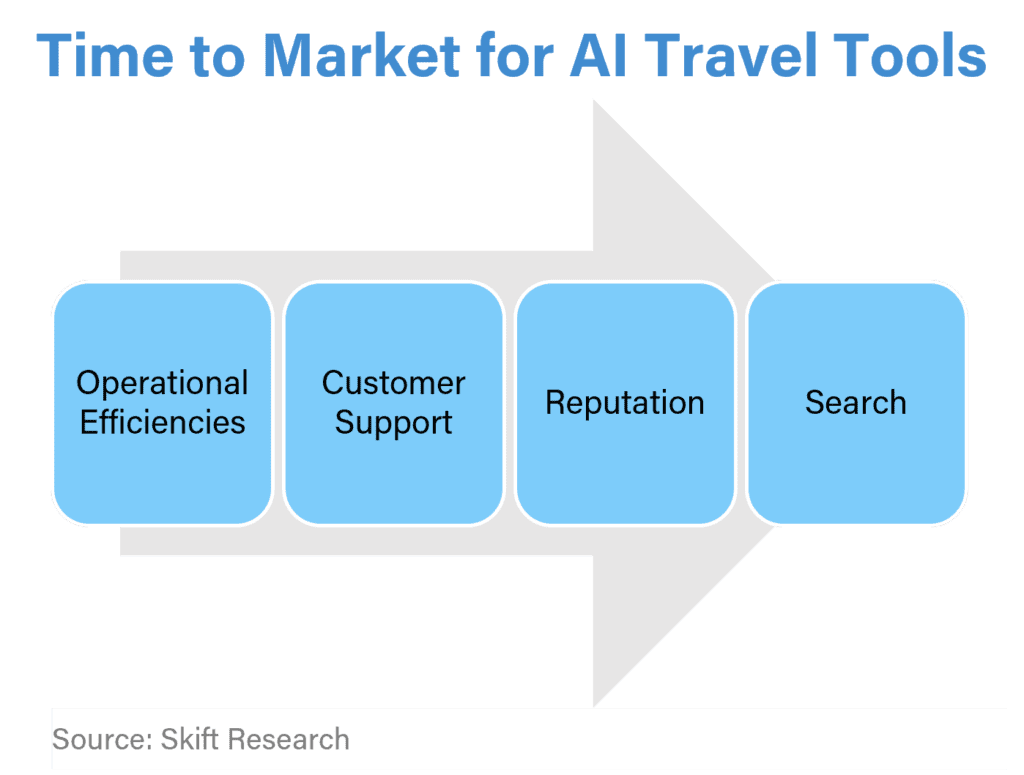
Our baseline is for ~$8.4 billion in AI created value in the travel industry. But there will also be additional, and potentially even more impactful, ways that AI will transform the travel industry but we have less visibility into how these second order impacts will play out.
For instance, AI stands to disrupt not just travel planning searches – and performance advertising – but it may also upend searches for travel inspiration as well. With that would come changes in how all sales & marketing throughout travel is done. Another case is operational efficiency. These need not be limited to only developer tools and AIs may set the stage for broad-based productivity gains across millions of travel industry jobs. Another scenario we envision is that AI assistants may change how complex technology stacks are integrated.
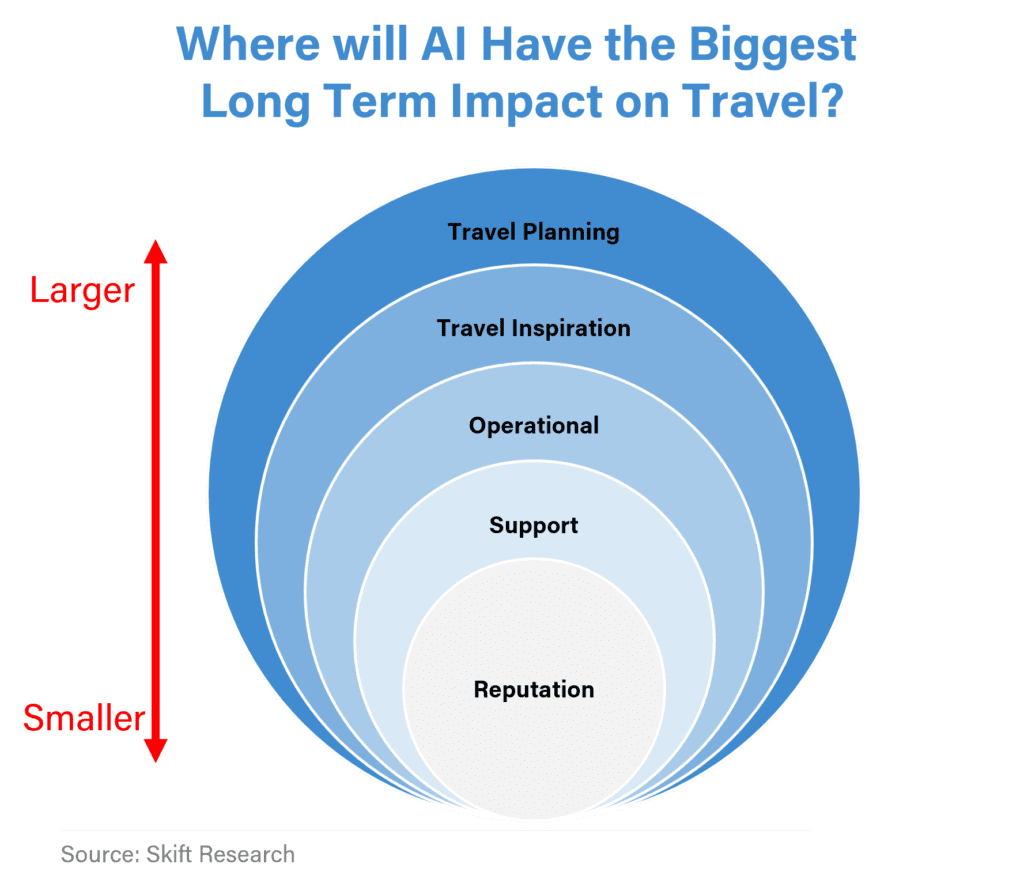
These additional categories where we are ‘dreaming big’ about the impact of AI on travel are harder to estimate with any true precision. But we believe they could potentially represent a $20 billion opportunity. Paired with our baseline market estimates we see artificial intelligence driving a $28 billion impact within travel.
Skift Research provides proprietary research, analysis, and premium data tools for travel industry leaders and their teams to better understand their industry and the outside forces driving change. Click here to see subcription options.

